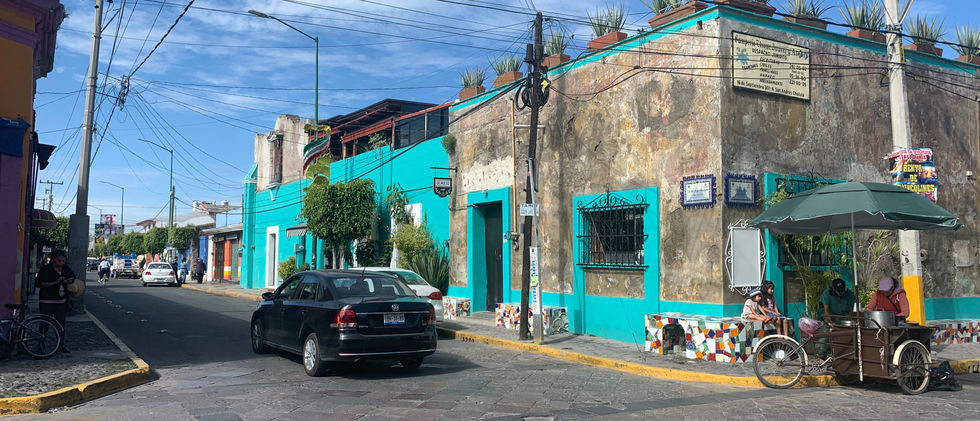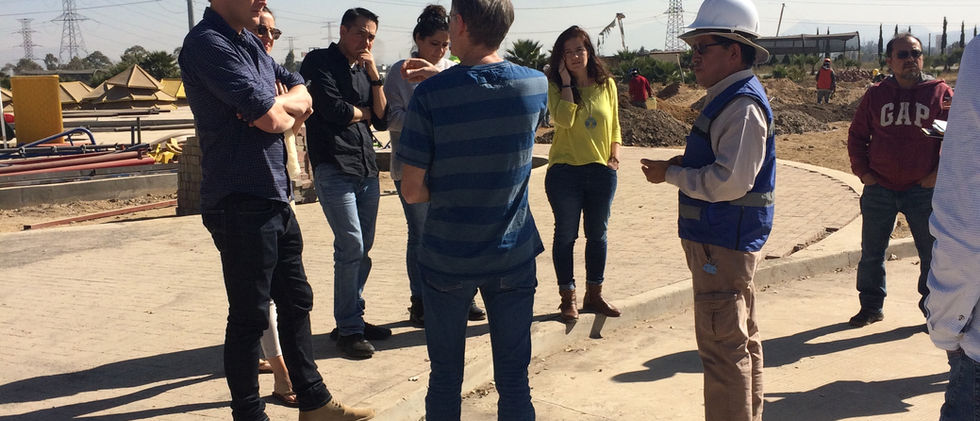Project Summary
The growth of Latin American cities in the last decades has led to an increase of vulnerable communities in informal settlements on land exposed to climate change-related risks, such as: surface, temperature, droughts, flooding, etc. heightening the need to improve the resilience of such communities. To overcome this, it is essential to develop innovative, co-created strategies to manage risk and increase resilience at the household level. Smart City approaches offer an integrative perspective, establishing the potential for developing collaborative solutions involving city governments and technology contractors. However, these technological solutions tend to be dependent on top-down initiatives, which do not necessarily take into account the needs of, or benefits for people living in poor informal communities. The aim of this project is to identify climate change-related challenges and possible 'smart city' strategies, through implementing an interactive dialogue between community members, government institutions, NGOs, private businesses and other stakeholders in Mexico. With a critical perspective and from a collaborative approach, 'smart city' strategies might bring innovative solutions that engage with communities, academics, technology contractors and local authorities in settlements affected by climate change-related effects. The project will explore innovative, context-specific and co-created strategies for managing risk and increase resilience, responding to the needs of the most vulnerable, through two scoping pilot studies, one in Mexico City and in the other in a semi-rural area in Puebla. Working at the macro-scale and the local scale, the research will provide, along with knowledge on community-based best practices, opportunities for interaction and negotiation between actors to increase resilience and reduce vulnerability.
Objectives
-
To identify institutional and bottom-up strategies for adaptation to climate change related risks in vulnerable communities in Mexico, understanding the perceptions that communities and institutions have of climate change-related risks and the role private and public sector organisations could play in increasing adaptive action
-
To identify possible 'smart city' solutions for climate-change adaptation from bottom-up approaches
-
To assess the viability of these initiatives enhancing co-created knowledge using smart-city solutions, through the implementation and analysis of selected scoping studies
-
To explore the potential for these approaches and techniques to be rolled out at the wider scale with community-based researchers, using training and communication programmes, creating society-wide change5_To build capacity in Mexican and UK universities on the proposed themes, strengthening their research infrastructures
The project will be structured around two interlinked components:
-
A research programme meeting objectives 1 to 4 and composed of literature reviews, interviews with key stakeholders, study visits and the analysis of the specific scoping studies implemented. It will be carried out in partnership between organisations in Mexico and the UK, with specific partners taking the lead for each of the two main work packages: (a)city-based climate change-related challenges and strategies and (b)semi-rural climate change-related challenges and strategies.
-
A knowledge exchange and training programme open to Mexican andUK practitioners, policy makers, academics and students based on the themes structuring this research. This will take place throughout the project but will be delivered through two intensive workshops in Mexico led by principal investigators in association with leaders in each theme in Mexico and the UK; and through the final conference of the project.
Date
2019-2020
Location
Puebla, Mexico
Partners
University of Edinburgh
Universidad Iberoamericana Puebla
Research Team
Dr Soledad Garcia-Ferrari
Dr Emma Regina Morales Garcia de Alba
Dr Nora Olanni Ricalde Alarcón
Dr Kathi Kaesehage
Dr Ryan Woolrych
Melisa Miranda
Funding Body














